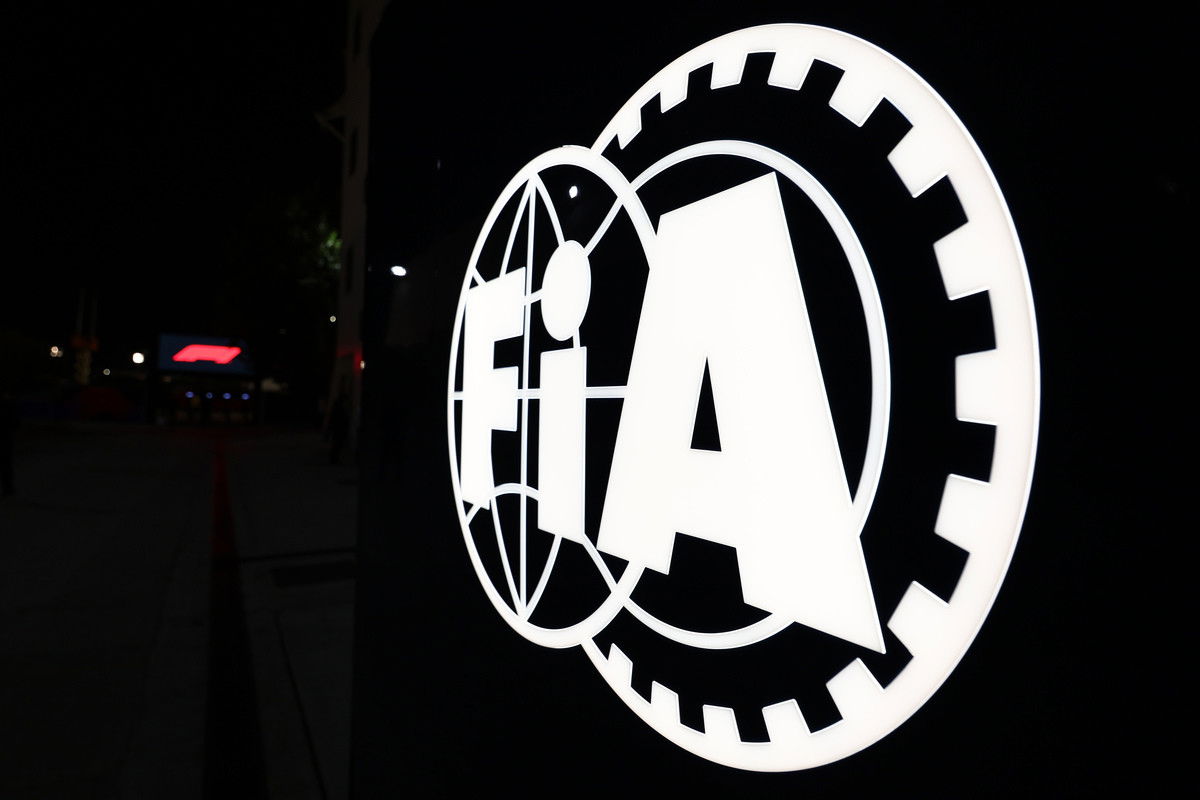

Leading drivers in the World Rally Championship have asked to meet with the FIA to discuss its current stance on swearing.
The latest version of the International Sporting Code (ISC), published last month, included a new appendix with guidelines for breaches of five specific rules.
They broadly relate to misconduct as the FIA takes a firmer stance on swearing specifically.
It follows F1 drivers Max Verstappen and Charles Leclerc both receiving (wildly different) penalties during the 2024 season and Hyundai WRC ace Adrien Fourmaux being stung by a €30,000 fine (€20,000 of which was suspended for 12 months) at Rally Sweden earlier this month.
The ISC covers the full spectrum of motorsport including both international and some domestic competitions.
As an International Series, Supercars is also governed by the document, and its drivers were briefed by Motorsport Australia officials in Sydney last week.
There, as in Formula 1 and WRC, significant confusion exists surrounding what is and is not acceptable.
That has prompted the World Rally Drivers Association (WoRDA) to issue a statement calling for much-needed clarity on the situation.
The lengthy statement (reproduced in full below) acknowledges competitors are role models but calls for common sense to be applied by officials.
It also highlights that many competitors are not speaking in their first language – and have often learned it through motorsport rather than a classroom – while being interviewed immediately after competition.
“WoRDA has always recognized our responsibilities and commitment to collaborate in a constructive way with all stakeholders, including the FIA president, in order to promote and elevate our outstanding sport for the benefit of all,” it read.
“In recent months, however, there has been an alarming increase in the severity of sanctions imposed for minor, isolated and unintentional language lapses.
“This reached an unacceptable level.”
The WoRDA statement follows a similar request made by the Grand Prix Drivers Association in the wake of Leclerc’s penalty last year.
Contacted by rally publication DirtFish, the FIA has stood firm on its position, reiterating its belief that abusive language in motorsport will not be tolerated in a move that brings it into line with other sports.
“We maintain a code of conduct that lays out what we expect of our athletes and their teams,” the FIA spokesperson told DirtFish.
“Drivers are looked up to as role models by young fans and are ambassadors for the wider world of motor sport, how they act at events matters.
“These rules and penalties are in line with those taken by our peer organisations in other global sports and high-profile leagues and championships.”
The move to stamp out swearing in motorsport has been widely viewed as an overreach by the governing body, and the penalties outlined in the new ISC appendix described as draconian.
The new guidelines were introduced as a means of standardising, to an extent, the punishments handed out by stewards in an effort to avoid the inconsistency seen between the Verstappen and Leclerc penalties last year.
However, that has not proven to be the case as, at the Formula E Jeddah ePrix, Dan Ticktum went unpunished for an f-bomb-riddled rant over team radio.
Though it didn’t make the broadcast, it was available to fans watching via the Formula E app and soon found its way online.
In that instance, stewards deemed no penalty was warranted as the comments were made “in the context of a radio communication with the team and not during a media interview.”
That contradicts a penalty Yuki Tsunoda was handed at last year’s Austrian Grand Prix when he used offensive language over team radio that was not part of the global broadcast but could be heard by fans via other channels.
In that instance, stewards handed the Japanese driver a €40,000, half of which was suspended.
“The Stewards appreciate the honesty of the driver, but reinforce the fact the words used are offensive and wholly inappropriate,” the stewards summary noted at the time.
“To have used such words over a platform that is available to the public amounted to misconduct as defined in Article 20 of the International Sporting Code.
“Considering the circumstances, the Stewards determine that a severe fine is required, but also take into account the genuine remorse of the driver and his offer to issue a public apology and for these reasons decide to suspend part of the fine imposed.”
FIA swearing stance revealed in F1 ‘toxic online abuse’ findings
It is that inconsistency on top of uncertainty surrounding what is and is not acceptable that has created concern as potentially significant financial penalties boil down to the stewards’ opinions.
While motorsport’s judicial process is more robust than most, the stewards of the event are charged with interpreting and applying the ISC, a point that leads to wildly different outcomes for seemingly identical circumstances.
Furthermore, with the base-level penalty worth €10,000 with multipliers based on the level of the championship, there is also a desire for clarity on where and how the funds are used.
“The FIA is a non-profit organization,” an FIA spokesperson told DirtFish.
“The following areas are where its income – including fines – are reinvested:
“In 2024, the FIA invested over €10.3 million for grassroots activities globally. Last year, the FIA delivered 70 motorsport safety research projects with a budget of €3.8 million.
“There are more than 300,000 volunteers and officials under the direction of the FIA – and 2.7 million motorsport participants worldwide. The FIA invested €1.3 million, which included the development of a new department to streamline the training of those volunteers and officials last year.”
World Rally Drivers Association statement in full
The Rally Drivers and Co-drivers of WoRDA, inspired by their GPDA colleagues, join together to express their opinion, seek clarity and co-operate towards a brighter future.
First and foremost, we wish to state that, as is the case with every sport, competitors must abide by the referees’ decision. The respect of this principle is not in question.
We are not all full-time professionals, yet we all face the same extreme conditions with the same relentless passion. Whether navigating through dense forest, across frozen roads in the dead of night, or through the dust of treacherous gravel tracks, we push ourselves to the limit – against the elements, against the clock, and against their own limits.
Beyond racing, our role has expanded. Today, rally drivers and co-drivers are not only athletes but also entertainers, content creators, and constant media figures. From the smart phones of spectators to the official WRC cameras, we are expected to be available at all times – before, during, and after competition, from dawn to dusk.
WoRDA has always recognized our responsibilities and commitment to collaborate in a constructive way with all stakeholders, including the FIA president, in order to promote and elevate our outstanding sport for the benefit of all.
In recent months, however, there has been an alarming increase in the severity of sanctions imposed for minor, isolated and unintentional language lapses. This reached an unacceptable level.
We strongly believe that:
– Common colloquialism cannot be considered and judged as equal to genuine insult or act of aggression
– Non mother-tongue speakers may use or repeat terms without full awareness of their meaning and connotation
– Seconds after an extreme adrenaline spike, it is unrealistic to expect a perfect and systematic control over emotions.
Rally is extreme: risk level for the athletes, intensity of the focus, length of the days… all the limits are reached.
In such a case we question the relevance and validity of imposing any sort of penalty. Moreover, the exorbitant fines are vastly disproportionate to the average income and budget in rallying.
We are also concerned with the public impression these excessive sums create in the minds of the fans, suggesting this is an industry where money doesn’t matter.
This also raises a fundamental question: where does the money from these fines go? The lack of transparency only amplifies concerns and undermines confidence in the system.
Surely the negative impressions surrounding these penalties far outweigh the impact of any language lapse.
We call for a direct communication and engagement between the FIA president and WoRDA members to find a mutually agreeable and urgent solution.
FIA statement to DirtFish
“Like many international governing bodies or leagues and championships in other sports, we maintain a code of conduct that lays out what we expect of our athletes and their teams.
“Drivers are looked up to as role models by young fans and are ambassadors for the wider world of motor sport, how they act at events matters.
“The code’s purpose is then to promote the best in sportsmanship and respect, including expectations around language that can be seen as offensive or inappropriate by many, or acts that could be deemed detrimental to the sport.
“These rules and penalties are in line with those taken by our peer organisations in other global sports and high-profile leagues and championships.
“As with all rules, particularly those in high-stress and competitive environments, it is crucial to assess situations on a case-by-case basis. But, unnecessary obscenity and profanity are not condoned.
“The FIA is a non-profit organization. The following areas are where its income – including fines – are reinvested:
“In 2024, the FIA invested over €10.3 million for grassroots activities globally. Last year, the FIA delivered 70 motorsport safety research projects with a budget of €3.8 million.
“There are more than 300,000 volunteers and officials under the direction of the FIA – and 2.7 million motorsport participants worldwide. The FIA invested €1.3 million, which included the development of a new department to streamline the training of those volunteers and officials last year.”





















Discussion about this post